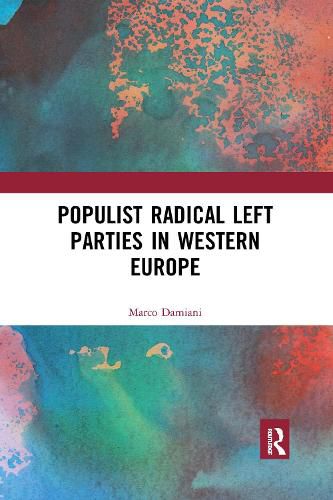Readings Newsletter
Become a Readings Member to make your shopping experience even easier.
Sign in or sign up for free!
You’re not far away from qualifying for FREE standard shipping within Australia
You’ve qualified for FREE standard shipping within Australia
The cart is loading…






This book provides a comparative analysis and a systemic categorization of the Populist Radical Left Parties (PRLPs) in Western Europe.
Institutional and socio-economic aspects have transformed the political culture of many modern democracies, leading to the creation of radical left-wing parties who, by combining a strongly populist political offer with the historical demands of the traditional left wing, are capable of electoral success. This book analyzes a range of different Populist Radical Left Parties (PRLPs) in Western Europe through in-depth case studies. The author uses statutes, internal documents, programs, election results, membership data, and international political literature combined with interviews with executives and national secretaries to describe and interpret the main features of PRLPs, their paths of formation and political transformation.
This volume will appeal to scholars and students of political science and political sociology, media studies and anyone interested in trying to better understand European populism and the distinctions among its different forms.
$9.00 standard shipping within Australia
FREE standard shipping within Australia for orders over $100.00
Express & International shipping calculated at checkout
This book provides a comparative analysis and a systemic categorization of the Populist Radical Left Parties (PRLPs) in Western Europe.
Institutional and socio-economic aspects have transformed the political culture of many modern democracies, leading to the creation of radical left-wing parties who, by combining a strongly populist political offer with the historical demands of the traditional left wing, are capable of electoral success. This book analyzes a range of different Populist Radical Left Parties (PRLPs) in Western Europe through in-depth case studies. The author uses statutes, internal documents, programs, election results, membership data, and international political literature combined with interviews with executives and national secretaries to describe and interpret the main features of PRLPs, their paths of formation and political transformation.
This volume will appeal to scholars and students of political science and political sociology, media studies and anyone interested in trying to better understand European populism and the distinctions among its different forms.